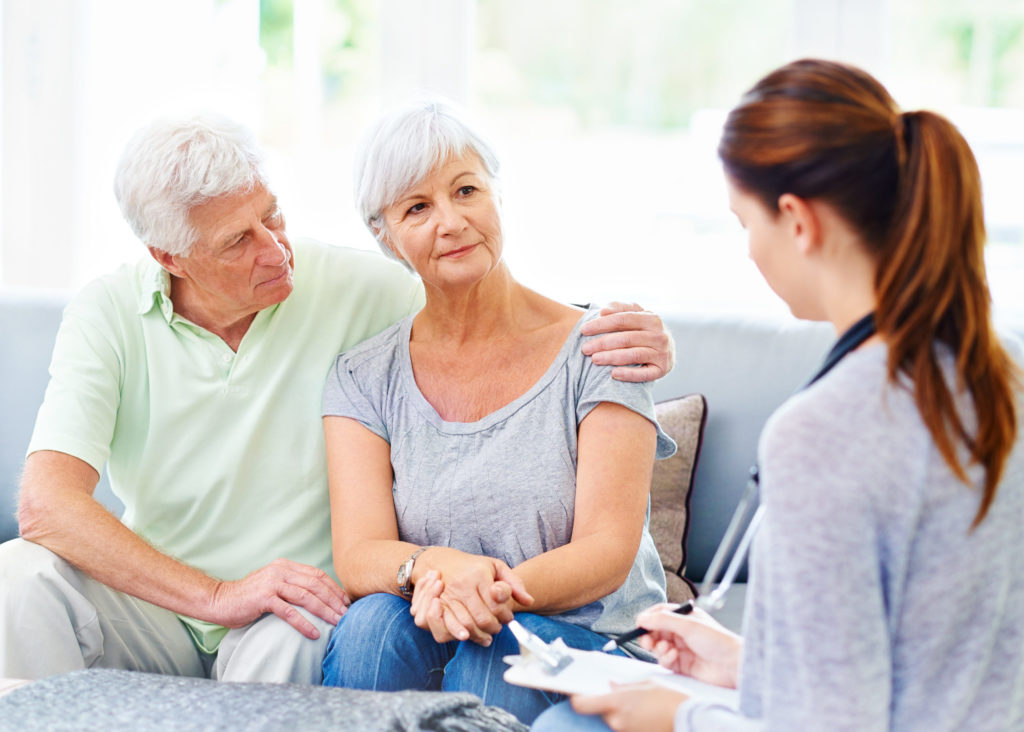For the week of March 19th through the 25th, organizers in this country will be staging events and activities that are intended to increase people\’s awareness of accidental poisoning, and for that cause, an entire week has been designated as National Poison Prevention Week.
Seniors are not exempt from the dangers of accidentally consuming poisonous substances around the home, especially if your senior loved one suffers from dementia, and can become confused. The consequences of consuming something poisonous can be so severe, that all necessary precautions should be taken with your senior loved ones so that the unthinkable is not allowed to happen. In this article, we\’ll discuss some of the ways you can make your home a little safer against the possibility of poison being accidentally consumed.
Why seniors are at risk
There are 55 poison centers situated throughout this country, and every year they receive millions of calls, most of which originate from people seeking information or who have come into contact with a poisonous substance. The vast majority of poisonings come about accidentally, with more than 77% of all reported incidents falling into this category. Seniors as a group are at much greater risk for accidental poisoning than teens and young adults, and this vulnerability stems from the fact that they are frequently left alone for long periods of time with no supervision. Many times, a senior might have an accident and not realize it right away or will be reluctant to report it, because they simply lack the knowledge, or because they\’re ashamed of having made the mistake. More than 90% of all accidental poisonings occur in the home, primarily in the kitchen, bathroom, or bedroom.
Another reason that seniors are at greater risk of accidental poisoning is because they will generally take far more medications than will younger people. With this increased consumption of prescribed and over-the-counter drugs, the likelihood increases that there will be some kind of interaction between one or more of these medications, and accidental poisoning may occur. Problems resulting from the side effects or interactions between medications result in close to one million visits to emergency rooms every year, according to the American Association of Poison Control Centers.
Seniors and older adults are more than twice as likely to visit an emergency room for medication-related issues, and they are seven times likelier to be hospitalized following a visit for this reason. Of course, medications are not the only way that a person can be accidentally poisoned. There are all kinds of household cleaners and chemicals that can trigger adverse reactions. Some of these poisons can become harmful when swallowed or breathed in, while others can cause rashes or other symptoms on the eyes or skin. Of course, seniors are generally aware that cleaners cannot safely be consumed, but any elderly person bothered by dementia might easily be confused and accidentally ingest some kind of poisonous chemical around the house.
Protecting your senior loved ones from poisoning
Given the fact that accidental poisoning can have such grave consequences for your senior loved one, it becomes important that you take some precautions that will help to avoid such situations. Here are some of the steps you can take to make your household much safer and to reduce or eliminate the possibility of accidental poisoning:
- Store all medications and household products in a different area from where your food is stored.
- Make sure your senior takes medications safely, with lights on, while wearing their glasses, and after reading and following label instructions.
- If your senior parent is forgetful, help them out by setting alarms that will remind them of the medications they need to take.
- Use pill separators and containers, so that daily doses can be tracked.
- Don\’t mix any household products or cleaners, because this can cause dangerous gases to be released.
- Keep all medications in locked cabinets, or at least out of the reach of seniors.
- Make sure medications are stored in their original containers and are properly labeled.
- Maintain an up-to-date list of all medicines being taken, and have this list with you whenever you see your doctor or visit the pharmacy.
- Make sure medications are stored in child-resistant packaging, and that all caps are securely fastened.
- Have a carbon monoxide alarm installed in all bedrooms in your household.
- Keep the phone number for your local poison control number handy, and it\’s best to leave it near the phone, so the center can be reached quickly in an emergency.
- Don\’t share prescription medications.
- If you\’re not sure about interactions, call the Poison Helpline to find out about potential drug interactions.
It doesn\’t take much effort to take these precautions, and it\’s certainly worth the trouble so you can avoid potential disasters like accidentally getting poisoned. Talk with your senior loved one periodically about this, and make sure they understand the dangers involved with mixing medications and consuming any kind of cleaning agent. Also, make sure they know how to contact the Poison Control Center if they happen to be alone and encounter a situation where poisoning may have occurred.
